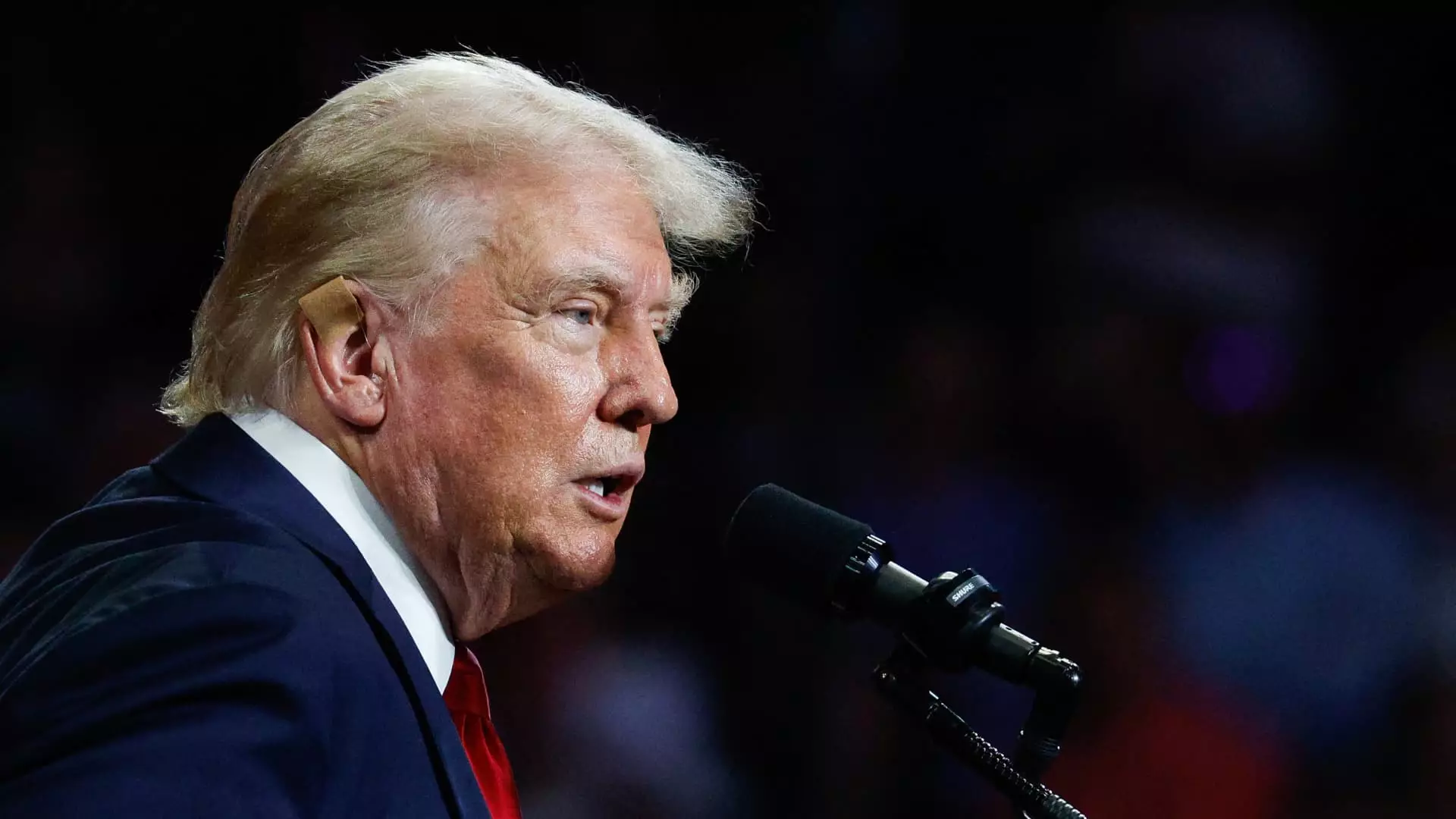Former President Donald Trump made headlines during his keynote speech at the Bitcoin Conference in Nashville by hinting at the possibility of establishing an official U.S. bitcoin strategic reserve. However, instead of committing to this revolutionary idea, he merely pledged to maintain the current level of bitcoin holdings acquired from seizing assets from financial criminals. This cautious approach may come as a disappointment to many crypto enthusiasts who were hoping for a more proactive stance from the U.S. government. As the crypto lobby in Washington continues to grow, the need for a clear strategy around bitcoin becomes increasingly urgent. While Trump’s proposal falls short of expectations, it raises important questions about the future of cryptocurrency regulation in the United States.
The idea of a U.S. bitcoin strategic reserve is not entirely novel. Third-party presidential candidate Robert F. Kennedy Jr. went a step further by promising to establish a 4 million bitcoin reserve to match the country’s current stake in gold. This ambitious plan would involve significant daily purchases of bitcoin by the U.S. Treasury, leading to a reshaping of how the cryptocurrency is regulated and valued. Kennedy’s proposal highlights the potential impact of a national bitcoin reserve on the global economy and the crypto market. While Trump’s more conservative approach may have disappointed some, it also underscores the complexities and challenges of implementing such a strategy.
Establishing a U.S. bitcoin strategic reserve would require more than just an executive order. The president would likely need new legislation and congressional approval to make it a reality. Senator Cynthia Lummis of Wyoming has announced her plan to introduce legislation that would support a strategic bitcoin reserve, aiming to accumulate 1 million bitcoin over five years. This reserve would be used to reduce the federal deficit and protect against rising inflation. However, passing such legislation would depend on a Republican sweep in the upcoming elections, highlighting the political obstacles facing this proposal.
A U.S. bitcoin strategic reserve could provide the digital currency with greater legitimacy and stability, especially in the wake of Wall Street’s increasing adoption of bitcoin. The listing of spot bitcoin exchange-traded funds on U.S. markets earlier this year was seen as a significant milestone in this direction. However, creating a national reserve for bitcoin would be a bold move, considering the cryptocurrency’s relatively short history and volatile performance. While it could lead to a surge in bitcoin’s price in the short term, it also raises concerns about market manipulation and government intervention in the crypto market.
The idea of a U.S. bitcoin strategic reserve presents both promises and pitfalls for the future of cryptocurrency in the United States. While it could enhance the legitimacy of bitcoin and potentially boost its value, it also poses challenges in terms of regulation, implementation, and political approval. As the debate around bitcoin continues to evolve, it is crucial to consider the implications of establishing a national reserve for this emerging digital asset. Only time will tell whether such a bold move will become a reality and how it will shape the landscape of crypto finance in the years to come.

